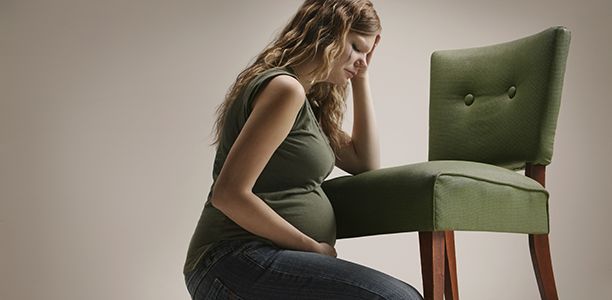The prevalence of domestic violence amongst women requesting a termination of pregnancy (TOP) is six times higher than amongst those in antenatal clinics, suggests a new study published today in BJOG: An International Journal of Obstetrics and Gynaecology.
This comparative study looked at the prevalence of domestic violence in women requesting a termination of pregnancy and those attending antenatal clinics. It used self-administered anonymous questionnaires among 219 women in an antenatal clinic and 274 in a TOP clinic in the Hull and East Riding areas of the UK.
The study highlights that almost half of all adult women in England and Wales have experienced domestic violence of one form, whether psychological, physical, sexual, financial or emotional. It constitutes up to one third of violent crimes and the direct and indirect cost of domestic violence alone in the UK is estimated to be £23 billion.
Results showed that among women attending TOP clinics 5.8% were victims of physical abuse in the current relationship, whereas it was 0.9% amongst women attending antenatal clinics. Women in the TOP group also suffered a higher rate of emotional abuse than those in the antenatal clinic population (9.9% compared to 1.8%).
Furthermore, the study looked at reasons for requesting a TOP. Of the 274 women requesting a TOP, 10 (2%) mentioned domestic violence as a contributing factor. The most common reasons for requesting a TOP were financial worries and contraceptive failure.
The authors conclude that even though domestic violence was not given as a frequent reason for requesting a TOP, women who request an abortion are at a higher risk of domestic violence and this may be related to other life issues. They emphasise the importance of relevant training amongst healthcare professionals so that women are referred to appropriate support services in a timely and sensitive manner.
Dr Tonye Telema Wokoma, Registrar in Sexual and Reproductive Health and co-author of the study said:
“Domestic violence remains a complex public health issue that may start or escalate with pregnancy and can cause many obstetric complications and psychological effects which ultimately may lead to loss of fetal or maternal life. Whether the pregnancy continues or ends, these women and their existing children live at risk.
“This study shows just a small fraction of the true scale of the problem. Health professionals looking after pregnant women regardless of the pregnancy outcome are well placed to sensitively ask the questions which lead to help and support.”
Pierre Martin Hirsch, BJOG deputy editor-in-chief added:
“Domestic violence can be extremely damaging to a woman’s mental, emotional and physical health and in some cases has been linked to postnatal depression.
“More research in this area is needed to determine effective screening methods and interventions to help women suffering from any form of abuse. It is only when this has been done, that sufficient measures can be initiated to address this growing problem that can pose a significant health risk to mother and baby.”
(Source: RCOG, BJOG: An International Journal of Obstetrics and Gynaecology)










